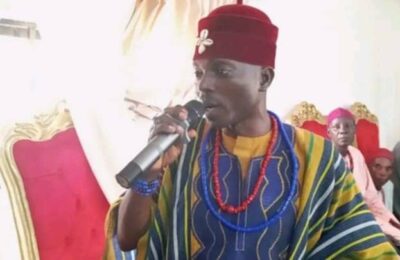Nigeria’s quest for industrialization and economic development has been hindered by the non-completion of the Ajaokuta Steel Company, a project that was meant to be the cornerstone of the country’s steel industry. The abandonment of this project has led to a surge in vandalism and theft of steel resources across Nigeria, exacerbating the country’s economic woes.
The project was conceived in the 1970s as a means of harnessing Nigeria’s vast iron ore deposits in Itape and other parts of the country to produce steel. This project was expected to generate about five hundred thousand jobs in employment at the upstream, stimulate economic growth, and reduce the country’s reliance on imported steel. However, despite billions of dollars invested, the project remains incomplete, a testament to Nigeria’s inability to execute large-scale industrial projects.
The Consequences of Incompletion
The non-completion of the Ajaokuta Steel Company has had far-reaching consequences for Nigeria’s economy and steel industry. The lack of a functional steel industry has led to:
Vandalism and Theft
The absence of a robust steel industry has created an environment conducive to vandalism and theft. Steel pipes, rails, and other infrastructure are being stolen and sold on the black market, further exacerbating the country’s economic woes. For instance:

Between January and August 2024, vandals destroyed 63 towers of Transmission Company of Nigeria, severely impacting the electricity supply in affected regions (Daily Trust, 2024). In 2024, the Transmission Company of Nigeria (TCN) also reported that vandals destroyed two transmission towers, T377 and T378, along the Gombe-Damaturu line (Vanguard, 2024).
In 2024, the Ibadan Electricity Distribution Company (IBEDC) recorded over 45 vandalism cases, highlighting the widespread nature of the problem (The Punch, 2024).
In 2020, the Nigerian Railway Corporation reported that vandals had stolen rail tracks worth millions of naira in various parts of the country (The Punch, 2020).
In 2019, the Federal Ministry of Power, Works and Housing reported that over 10,000 manhole covers had been stolen in Lagos State alone, valued at over N1 billion (Vanguard, 2019).
In Abuja, the Federal Capital Territory Administration (FCTA) reported that over 5,000 manhole covers had been stolen in 2022, valued at over N500 million (Daily Trust, 2022).
Stolen steel materials, including manhole covers, have been found in markets such as Scrap Market in Dei Dei, Abuja. In 2023, traders at the market were arrested for selling stolen manhole covers (The Punch, 2023).
In January, 2025, the police in Abuja reported to have recovered manhole covers from Abuja Steel company (Daily Independent, 2025).
The police also reported in January, 2025 to have recovered 125 stolen manhole covers from Abuja scrap market (Daily Trust, 2025).
The Abuja Steel Company, a private steel manufacturing firm, has also been a target of vandals. In 2023, the company reported that vandals had stolen steel products worth over N100 million (The Punch, 2023).
Economic Losses
The non-completion of this Steel Company has resulted in significant economic losses for Nigeria. The country has lost billions of dollars in potential revenue, and the lack of a steel industry has hindered the development of other sectors, such as construction and manufacturing.
Unemployment
The abandonment of the Ajaokuta Steel Company has led to significant job losses, exacerbating Nigeria’s unemployment crisis. Come to think of the fact that over five hundred thousand persons is removed from the army of unemployed youth in the labour market today, the positive impact will be felt.
Insecurity
The abandonement of Africa’s largest industrial plant is largely responsible for insecurity in the country, as the youth have taken to the unapproved means to success (Strain Theory).
The Way Forward
To address the challenges posed by the non-completion of the Ajaokuta Steel Company, the Nigerian government must take decisive action:
- Complete the Project_: The government should prioritize the completion of the Ajaokuta Steel Company, ensuring that the project is executed efficiently and effectively.
- Develop a Robust Steel Industry_: The government should develop policies and programs aimed at promoting the development of a robust steel industry, including providing incentives for investors and supporting research and development.
- Enhance Security_: The government should enhance security measures to prevent vandalism and theft, including deploying security personnel and the use of local vigilantes to protect steel infrastructure. Conclusion
The non-completion of the Ajaokuta Steel Company has had devastating consequences for Nigeria’s economy and steel industry. To address these challenges, the government must take decisive action to complete the project, develop a robust steel industry, and enhance security measures. Only then can Nigeria unlock the full potential of its steel industry and achieve sustainable economic growth.
– Comrade Opaluwa Eleojo Simeon
PhD Research student, Criminology and Security Studies Programme, National Open University of Nigeria.





